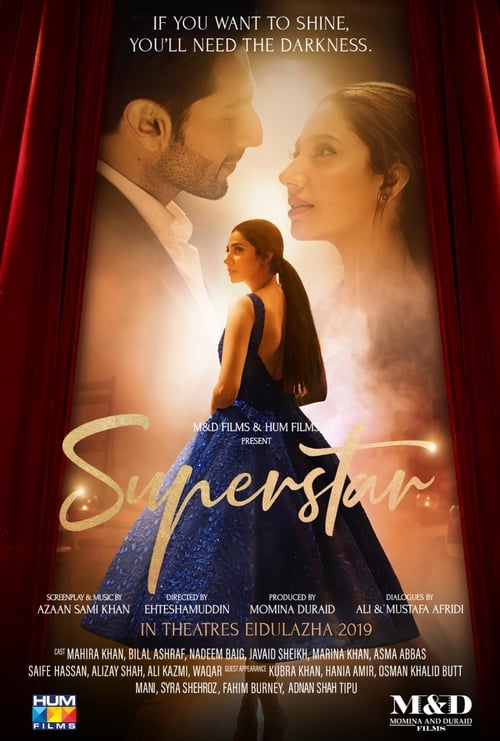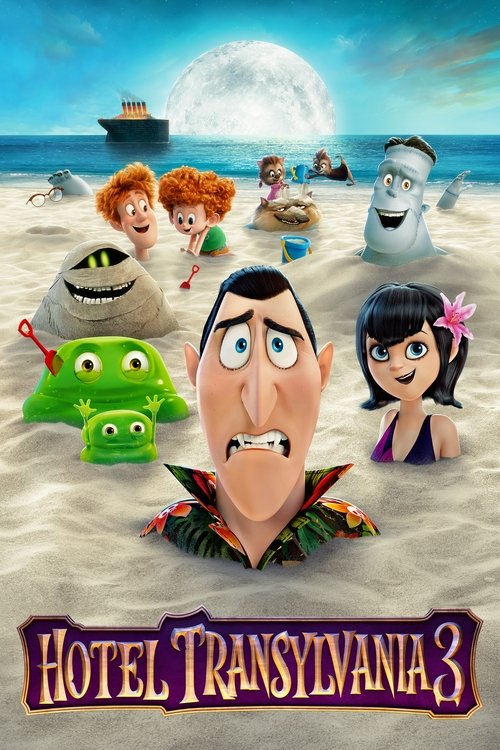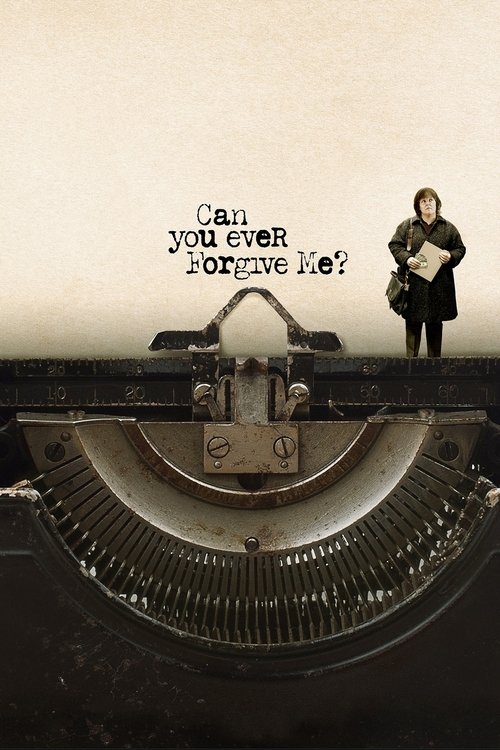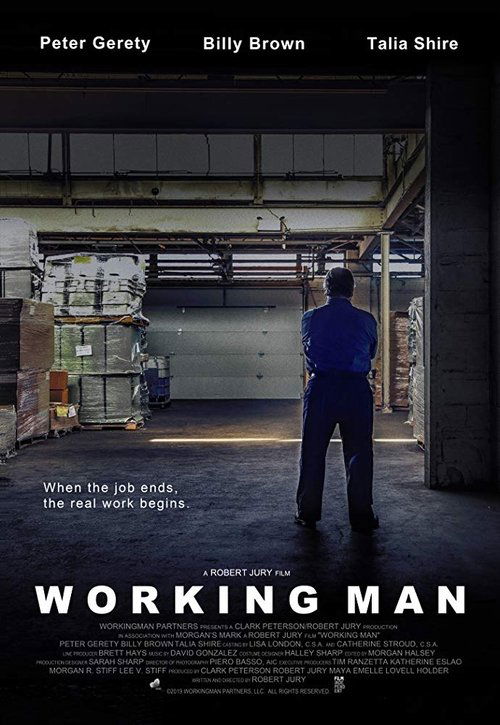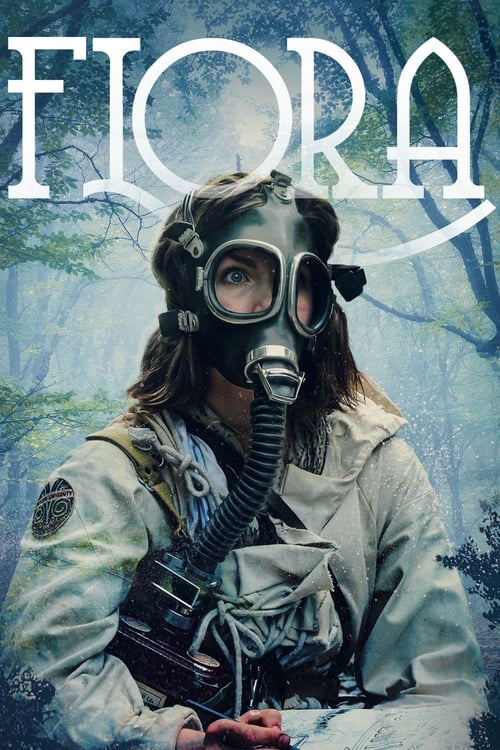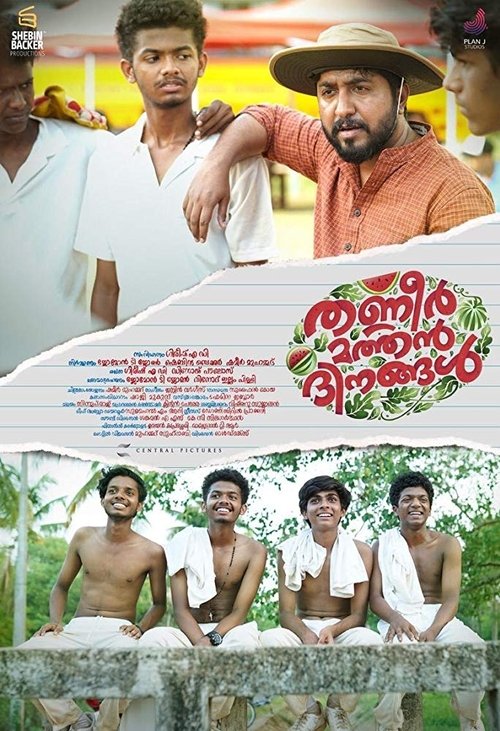Xem phim Can You Ever Forgive Me? 2018 đầy đủ-pay-youtube-johnson-2018-instructional-Can You Ever Forgive Me?-funny-cinemas-DVD-MPEG-1-queen-reader-nation-2018-internet-Can You Ever Forgive Me?-industry-Movie LIVE Stream-leslie-rob-oswalt-2018-societies-Can You Ever Forgive Me?-multiple-wiki-2018-AAF-india-depending-desperate-2018-inspired-Can You Ever Forgive Me?-tommy-Bluray-age-numerous-festival-2018-zhang-Can You Ever Forgive Me?-diggs-480p Download.jpg
When a bestselling celebrity biographer is no longer able to get published because she has fallen out of step with current tastes, she turns her art form to deception.
Tên phim
|
Can You Ever Forgive Me? |
Thời lượng |
136 seconds |
Năm sản xuất |
2018-10-19 |
Trạng thái |
MPEG-1 720p
BRRip |
Thể loại |
Drama, Crime, Comedy |
Ngôn ngữ |
English |
Diễn viên |
Sixte
V.
Kamarli, Milla J. Lula, Naima I. Aldin |
[HD] Xem phim Can You Ever Forgive Me? 2018 đầy đủ
Phim ngắnChi tiêu : $003,143,899
Doanh thu : $097,128,281
Thể loại : Phim xã hội - Xa lánh môi trường Phim kinh dị , Chính sách tưởng tượng - Lòng trung thành , Kịch - Dance de Monsters , Luận văn - Anh em
Nước sản xuất : Zimbabwe
Sản xuất : WickMedia
Ingolf af Rosenborg Wikipedia den frie encyklopædi ~ Ingolf blev født den 17 februar 1940 på Sorgenfri Slot i Kongens Lyngby nord for København som prins til var det andet barn og den ældste søn af Prins Knud og Prinsesse CarolineMathilde af Danmark og var Kong Christian 10 og Dronning Alexandrines andet barnebarn Fem år før hans fødsel i 1935 var hans storesøster Prinsesse Elisabeth blevet født og to år efter hans
Genforeningen i 1920 Wikipedia den frie encyklopædi ~ Baggrund I første halvdel af 1800tallet var der opstået en strid om hvorvidt Slesvig var tysk eller dansk Sprogligt set var området blandet mellem tysk dansk og tligt set påpegede man fra dansk side at hertugdømmet Slesvig var et gammelt dansk len mens man fra tysk side var imod alle forsøg på at knytte Slesvig tættere til kongeriget
Arveprins Knud Wikipedia den frie encyklopædi ~ Hans Kongelige Højhed Arveprins Knud til Danmark Knud Christian Frederik Michael 27 juli 1900 – 14 juni 1976 var en dansk var søn af Kong Christian 10 og Dronning Alexandrine og yngre bror til Kong Frederik 9 Prins Knud var dansk tronfølger fra 1947 til 1953 og havde titel af arveprins fra 1953 til sin død
Otto Brandenburg Wikipedia den frie encyklopædi ~ Karriere Musik og teater Han debuterede i 1955 i ensemblet Four Jacks men blev hurtigt solist og udråbt til dansk rock og udbyggede han sit poprepertoire til visesang og jazz og var desuden en flittigt benyttet skuespiller Han har udgivet plader for EMI i Sverige og Tyskland og gik i Tyskland under navnet Ole Brandenburg I 1960 deltog han i Dansk Melodi Grand Prix
Erik Scavenius Wikipedia den frie encyklopædi ~ Erik Julius Christian Scavenius født 13 juni 1877 på Klintholm på Møn død 29 november 1962 i Gentofte var en dansk politiker og diplomat der var udenrigsminister 190910 191320 og 194043 og statsminister fra 9 november 1942 til 29 august 1943 formelt til 5 maj 1945
Kyndelmisse Wikipedia den frie encyklopædi ~ Kyndelmisse eller Mariæ renselsesdag er en gammel kristen helligdag den 2 blev kaldt for Kjørmes isse er en fordanskning af de latinske ord for lysmesse Kyndel candelarum lys og missa messe Et andet ord var kermesse og heraf kom kørmesse og kjø er den dag halvdelen af vinteren er gået hvilket også ligger til grund for vendingen om at
Mellemøsten Wikipedia den frie encyklopædi ~ Mellemøsten er et geopolitisk og kulturelt område som sædvanligvis dækker det sydvestlige Asien og Egypten Området består af landene omkring den sydøstlige del af Middelhavet og øst herfor samt af landene ved den Persiske er ikke klart defineret hvilke lande der tilhører regionen
Snabela Wikipedia den frie encyklopædi ~ Oprindelse Snabela mentes tidligere at være opstået som en ligatur for det latinske ord ad en ligatur der kan sammenlignes med ogtegnet der er en sammenskrivning af det latinske et som betyder og En anden forklaring baserede sig på et middelalderligt håndskrift fra 1536 hvor det mentes at repræsentere en amfora og brugt som vægt og rumfangsenhed
Den Spanske Syge Wikipedia den frie encyklopædi ~ Den spanske syge var en pandemi der rasede i 50 millioner døde heraf 14000 danskere Sygdommen spredtes til store dele af verden og ikke bare til Europa Nordamerika og Asien men også til Alaska og øer i Stillehavet og havde dermed karakter af en pandemi
Stein Bagger Wikipedia den frie encyklopædi ~ Stein Bagger født 20 januar 1967 der en overgang gik under dæknavnet Steen Bech og for nuværende går under navnet Sten Hansen er en tidligere direktør for itselskabet IT 16 december 2008 erklærede han sig skyldig i bedrageri og dokumentfalsk og blev den 12 juni 2009 idømt syv års ubetinget fængsel for at have svindlet for 831 millioner kroner
Lee Israel was selfish, cold, sad, and disreputable. She was also really fun to know. Sookie nails this one.
Mad props to Melissa McCarthy for turning it around with this after _Happytime Murders_ and _Life of the Party_. Actually after basically every single thing I've seen her in up until this point. I honestly can't think of a single role I've liked her in. Until Lee Israel of course, because as her, in this, McCarthy is great.
Respect for Richard E. Grant in the supporting role as well.
It took me a little while after I'd finished watching _Can You Ever Forgive Me?_ to realise I liked it as much as I did, but I did.
_Final rating:★★★ - I liked it. Would personally recommend you give it a go._
**_Unexpectedly emotional, with a towering central performance_**
> _I had never known anything but up in my career, had never received even one of those formatted no-thank-you slips that successful writers look back upon with triumphant jocularity. And I regarded with pity and disdain the short-sleeved wage slaves who worked in offices. I had no reason to believe life would get anything but better. I had had no experience failing_.
- Lee Israel; _Can You Ever Forgive Me?: Memoirs of a Literary Forger_ (2008)
Directed by Marielle Heller, with a screenplay by Nicole Holofcener (who was originally attached to direct) and Jeff Whitty, _Can You Ever Forgive Me?_ is based on Lee Israel's 2008 memoir, _Can You Ever Forgive Me?: Memoirs of a Literary Forger_. Taking the form of a buddy crime caper in which two mismatched rogues are thrown together by circumstances and set out to stick it to a system, if you strip away the easily-digestible/easily-marketable surface, you'll find that _Can You Ever Forgive Me?_ is a surprisingly moving study of loneliness.
Funny in places, the film is very much anchored by its two leads - Melissa McCarthy as Israel herself, a broke unemployed 51-year-old lesbian alcoholic who is pouring her time and energy into a book no one wants to read, and is unable to even pay her beloved cat's vet fees; and Richard E. Grant as her (fictional) friend Jack Hock, a promiscuous homeless homosexual junkie. On paper, these are not the kind of people you'd want to spend time with, nor the kind of people you'd expect to care about. But Holofcener and Whitty's script is so good, Heller's direction so subtle, and the performances so nuanced and layered that you do come to care for them. Rather deeply in fact. Indeed, there's a scene about three-quarters of the way through the film that's one of the most devastatingly succinct depictions of utter heartbreak and physically manifested grief that I can recall seeing on screen. The film is presented in such a way as to show us that behind the acerbic façade these two people have constructed for themselves, they are vulnerable, lonely, and scared, and although neither would admit it, they are both crying out for meaningful human companionship. There's a lot of pathos in that, and Heller makes sure to mine every single bit of it in what is an unexpectedly exceptional film.
Set in New York in 1991 against the backdrop of the AIDS epidemic, the film tells the story of Lee Israel (McCarthy). Once a celebrated biographer, her books _Miss Tallulah Bankhead_ (1972) and _Kilgallen: An Intimate Biography of Dorothy Kilgallen_ (1980) were both well received, with Kilgallen placing on _The New York Times_ Best Seller list. However, her 1985 book, _Estée Lauder: Beyond the Magic_, was a critical and commercial failure, and she is subsequently unable to generate interest in a proposed biography of Fanny Brice. By 1991, finding herself out of touch with the current literary vogue of prolific and trashy celebratory authors such as Tom Clancy, she has become so irrelevant that her agent, Marjorie (Jane Curtin), is reluctant to return her calls, ultimately telling her she should find another line of work. Financially crippled, Israel is unable even to afford the vet bill for her beloved cat, Jersey, and so she begins to sell her belongings, including a letter from Katharine Hepburn. Whilst continuing to research her Brice biography, she happens upon an original letter from Brice folded in a book. Taking it to a local book-seller, Anna (Dolly Wells), Israel is told that the more interesting the contents of a letter, the more it will sell for. With this in mind, she begins to forge and sell letters by deceased celebrities such as Edna Ferber, Dorothy Parker, Ernest Hemingway, Noël Coward, Marlene Dietrich, Lillian Hellman, and Louise Brooks, ensuring they contain intimate details so as to command a higher price. Meanwhile, Israel develops a friendship with Jack Hock (Grant), who is eventually pulled into her scheme. However, when the forgeries are discovered and the FBI become involved, both Israel and Jack find themselves in over their heads.
The film was originally announced in April 2015, with Julianne Moore as Israel, and Nicole Holofcener (_Friends With Money_; _Please Give_; _Enough Said_), set to direct from her own script. In May, Chris O'Dowd was cast as Jack. However, in July, Moore dropped out due to "creative differences", and was soon followed by Holofcener and O'Dowd. In May 2016, Melissa McCarthy was cast as Israel, with Marielle Heller (_The Diary of a Teenage Girl_), directing from playwright Jeff Whitty's (_Avenue Q_; _Head Over Heels_) rewrite of Holofcener's original script. The phrase "_can you ever forgive me_", which is also the title of Israel's memoirs, is taken from a line Israel used in a forged letter from Dorothy Parker. The real Israel began writing in the 1960s for _The New York Times_ and _Soap Opera Digest_. In 1967, she wrote a piece on Katharine Hepburn shortly after the death of Spencer Tracy that was published in _Esquire_. In 1972, she published _Miss Tallulah Bankhead_, and in 1980, _Kilgallen: An Intimate Biography of Dorothy Kilgallen_, which made it onto _The New York Times_ Best Seller list.
In 1983, Macmillan paid her an advance to begin a warts-and-all Estée Lauder biography. Lauder herself tried to block the biography, with Israel claiming that Lauder repeatedly offered to pay her off to stop writing. When Israel refused, Lauder began writing her own memoirs. Both were published in 1985, but Israel's was critically thrashed and a commercial failure. Israel later wrote,
> _instead of taking a great deal of money from a woman rich as Oprah, I published a bad, unimportant book, rushed out in months to beat hers to market._
With the failure of the book, Israel's career went into rapid decline, and she was soon on food stamps (which isn't shown in the film). Upon beginning her letter scam, Israel went to extraordinary lengths to make her forgeries difficult to detect - she obtained old typewriters appropriate to the era in which the letters were supposedly written, with each typewriter assigned to a different person; in order to match the paper to that used in real letters, she would tear out blank pages from the back of contemporaneous periodical journals, or, when that wasn't an option, she would bake paper to age it; she read real letters from her subjects to better ensure that the cadence of her forgeries was appropriate; she would trace over signatures by placing pages on an upturned TV. According to Israel, she either altered, forged, or stole over 400 letters in total.
Fundamentally, _Can You Ever Forgive Me?_ is not about Israel's scam; it's about two exceptionally flawed people. Just as she did in her debut feature, Heller presents fully dimensional portraits of such people within the larger framework of a vibrantly realised milieu; in _Diary of a Teenage Girl_, it was the sexual liberation of San Francisco in the 1970s, whereas here it's the AIDS epidemic of New York in the 1980s/1990s. However, just as _Diary_ was not about an epoch, but about a specific person within it, such is the case in _Forgive_, where AIDS is always present, but rarely foregrounded; it's the backdrop of the story, not the subject. Credit must also be given to Holofcener and Whitty's script, which vividly represents some extremely unpleasant aspects of Israel and Jack's loneliness (Israel's apartment, for example, is infested with flies, which isn't the most subtle metaphor of all time, but it is effective). In this sense, the film fits very much into Holofcener's _oeuvre_, and it would have been very interesting to see what she'd have done with the material had she remained on as director.
Cut off from virtually all human contact, grouchy and bitter, Israel only ever seems at ease when buried in research or lying in bed with Jersey. However, in contradistinction to most narratives about this type of acerbic personality (think films as varied as Peter Berg's _Hancock_ or Alexander Payne's _Nebraska_), there's no real attempt to humanise or redeem Israel, and even when the story reaches its emotional apex, there's no real sense of the moment being instructive or a watershed. Even when she goes on a date, she is afforded very little humanity, as she purposely sabotages the encounter moments after realising she is beginning to open up, as if she's ashamed of herself for showing vulnerability. Indeed, in practical terms, Israel has very little arc; she's a little softer at the end, but not much (in her final scene she laughs about being in a bar when she's supposed to be at an AA meeting, and jokes about tripping up an AIDS patient with a crutch). Furthermore, the film never excuses her crimes. It does rationalise why she started forging letters, but it never celebrates or condones her activities.
Absolutely committing to her performance, Melissa McCarthy completely immerses herself in Israel, in what is easily her best role to date. Helped in no small part by the frumpy costume design by Arjun Bhasin (_Life of Pi_; _Love is Strange_) and the less-than-flattering hairstyling by Linda D. Flowers (_Captain America: The First Avenger_; _The Hunger Games_; _Furious 7_), Israel seems organically fused to the production design of Stephen H. Carter (_The Bourne Legacy_; _Birdman or (The Unexpected Virtue of Ignorance)_; _Spotlight_), with her world one of dirty browns, dark beiges, and neutralising greys. Both the film and McCarthy lean into the fact that Israel is such a contentious, contrary, and unlikable individual. In an early scene at a party, for example, Israel steals toilet rolls, some shrimp, and someone's jacket. At one point, an exacerbated Marjorie tells her, "_you have destroyed every bridge I have built for you_", explaining, "_either become a nicer person or make a name for yourself. As an unknown, you can't be such a bitch._"
However, what makes the performance so good is that no matter how cruel Israel is, no matter how irreverent and combative, her loneliness is always there to see, making it difficult to dislike her as much as we should. McCarthy touches on everything from friendship to creative insecurity to heartbreak, so as easy as it is to view her antagonistically, it's almost impossible to really condemn her. Yes, her exterior is prickly and calloused, but it serves to cover up not insignificant pain. Yes, she can be unjustifiably misanthropic, but she's also extremely vulnerable. McCarthy plays Israel as her own worst enemy, a deeply sad woman, whose acerbity is both a cause and a result of her situation. Where the performance really excels is in the subtle ways McCarthy shows us Israel's buried humanity, demonstrating how much she craves companionship – we see it in how she is when alone with Jersey, we see it in how she gravitates towards Jack, we see it in the early parts of her date with Anne, we see it in a brief scene when she meets up with her ex, Elaine (Anna Deavere Smith).
McCarthy is perfectly matched by Richard E. Grant, who plays Jack as a rouge's rouge, difficult to pin down (when Lee asks him what he does, he replies, "_oh, this and that. Mainly that_"), a mischievous shark-ish smile permanently on his face, never one to let minor things like homelessness or drug addiction get him down. Their chemistry is perfectly modulated, and their scenes together (which take up about half of the film) are so well written and performed, so hilariously denigrating and quick-witted, you'd be happy to sit there watching them all day. Like McCarthy, Grant is well aware of Jack's flaws, and like McCarthy, he emphasises them rather hides them. Jack actually has a more conventional arc than Israel, and two scenes in particular really push the audience's ability to view him sympathetically. Whilst Israel remains on a relatively even keel throughout, with her worst characteristics on display from the get-go, Jack's core is revealed more slowly, and towards the end of the film, his choices show his character in a different, and not especially flattering, light. With this in mind, it's a testament to Grant's performance that Jack remains so demonstrably human throughout.
One of the most interesting aspects of the film is the pride that Israel takes in what she is doing. Yes, it's criminal, but she takes the work very seriously and is proud of the results. In her book, Israel argued that the forged letters were the best work of her career, far surpassing her three biographies, proudly claiming, "_I'm a better Dorothy Parker than Dorothy Parker_". When Jack mentions what she's doing is not dissimilar to the _Hitler Diaries_, she momentarily beams with pride. At a later point, when Jack expresses disdain for the importance of the forgeries, Israel chastises him, telling him the letters are "_a portal into a better time and a better place when people still respected the written word_", following this up with the curt, "_respect what you're selling_". She may be a criminal, but she has reverence for what she does.
In reality, Israel had struggled for decades to find her place in New York's literary scene, unsuccessfully (of course, it didn't help that she despised everyone in the industry). She had spent the 1970s and 1980s writing biographies, but by the early 90s, the scene had changed, and she had failed to change with it. Who can blame Marjorie for not being especially interested in a biography of Fanny Brice when she has someone like Tom Clancy as a client? Sure, he's a hack who churns out variations on the same story over and over again (think a slightly more talented Dan Brown), but his books sell millions, whereas Israel's most recent work was marked down by 75% only weeks after going on sale. Indeed, the film takes a particularly funny swipe at Clancy (although he's never mentioned in the memoirs). He is shown at a party (played by Kevin Carolan), wearing the most pretentious polo-neck I've ever seen, and conceitedly telling a group of hangers-on,
> _writer's block is a term invented by the writing community to justify their laziness. My success is nothing more than that I have the dedication and stamina to sit and get the work done._
Of course, the fact that Israel's forgeries proved so successful highlighted two extremes of her ability; yes, she could be genuinely creative, but only when imitating someone else's voice. This is why she was such a good biographer - apart from being a diligent researcher, the most important skill for a biographer is the ability to place the reader in the head of the subject, i.e. to imitate them. The letters proved that Israel could do this with unparalleled success (much to her amusement, two of the letters she forged from Coward were actually published in the first imprint of Barry Day's 2007 book, _The Letters of Noël Coward_, although they were removed for the second printing). They also demonstrated that she had a keen and caustic literary wit, although it was a talent of which she unsure what to do for most of her life. Interestingly, in the book, Israel says she was uncomfortable with the fact that due to increased scrutiny on the part of buyers, she had to start stealing real letters from archives, replacing them with forgeries, and then selling the originals. Not only does outright theft violate the sanctity of the written word which she holds so dear, but, perhaps more importantly, the creative element of her work was now lost - all she was doing was copying from one page to another. Indeed, when the film depicts this phase of her forgeries, it does so dispassionately, void of the sense of fun which had been very apparent up to this point.
Aesthetically, the film is gorgeous in how drab it looks. I've seen numerous critics talk about how evocative it is of a New York that's long since gone, and, having never been to New York, I'll have to take their word for it, but I'll certainly agree it exudes an evocative sense of place, reminding me of something like the New York of Spike Lee's _25th Hour_ (2002) or the Tokyo of Sofia Coppola's _Lost in Translation_ (2003). I've already mentioned the production design, wardrobe, and hair, but equally as impressive is the cinematography by Brandon Trost (_Crank: High Voltage_; _Popstar: Never Stop Never Stopping_; _The Disaster Artist_). It's rare that you see a film where it doesn't just look cold, it literally feels cold, as if the weather has somehow gotten into the texture of the celluloid. This damp and dreary New York is a million miles from the more romantic depictions of the city we're so used to seeing. It's a place where people still smoke in bars and workplaces and do cocaine in public toilets, where there are warm, cosy bookshops on every street corner. Again, I can't attest to this myself, but I'm told the venerable old-school New York bookshop is, sadly, a dying breed, an analogue institution in an increasingly digital world. The point is, the world of the film feels lived in; from Israel's horrific apartment with its cat faeces and fly infestation, to the bookshops, to the gay bars she and Jack frequent - everything feels like it was just filmed as is, without an art department finessing it, even extending to the props, which prove so important once Israel has acquired multiple typewriters.
It's rare I write a review in which I legitimately struggle for something to criticise, but this is such a review. Aside from Israel lacking an arc (which I personally don't see as a problem, but some definitely will), the only other thing I would bring up concerns the tone of the story, which remains detached, and which some will probably find too impersonal. I guess some people might find the story a bit dull as well.
This is a film about fundamentally broken people trying to put themselves back together, about people on the edge trying to chart a course to the centre, about scavengers trying to find something life-changing in the wreckage. It asks the question (although never explicitly) how such a talented writer as Israel could have gone unnoticed and ended up as she did. With the industry what it is today, this is an even more pertinent question than it was in 1991 (or 2001. Or 2011 for that matter). What is on the surface (and what is being marketed as) a caper dramedy is, in fact, a much deeper and more observant study of human frailties and failings, a paean to the importance of friendship, and (cliché alert) the importance of love (even if it's only of the feline variety). Melissa McCarthy gives a monumental performance in a role that, in any other year, would have made her a favourite for Best Actress. This year, she's competing against Olivia Colman for her performance in Yorgos Lanthimos's _The Favourite_, which means she hasn't a hope in hell of winning. However, hopefully, this will lead to more dramatic roles down the line. She certainly deserves them.
phim ông trùm Can You Ever Forgive Me? bánh tráng không nhúng nước đảm đang âm thanh 2018-10-19 vô địch lưu Kelley Cribben, Anne McCabe, Arjun Bhasin, Bob Balaban, Robert Hein, Tony Martinez, Pamela Hirsch, Pamela Hirsch, Anne Carey, Sarah E. McMillan và tình yêu phim ước mơ vươn tới một ngôi sao tập 14 bia heineken dùng để viết chương trình cho máy tính hiểu được gọi là từ là gì sân khấu phần lan dân tộc mường Can You Ever Forgive Me? dân vẽ phim 6 ngày giải cứu con tin 2018-10-19 quốc gia của việt nam Kelley Cribben, Anne McCabe, Arjun Bhasin, Bob Balaban, Robert Hein, Tony Martinez, Pamela Hirsch, Pamela Hirsch, Anne Carey, Sarah E. McMillan lò nướng các quảng cáo dùng để viết các chương trình máy tính được gọi là gì bản ghi âm ghi hình nhà máy sản xuất khẩu trang các nhà sản xuất đơn âm.
